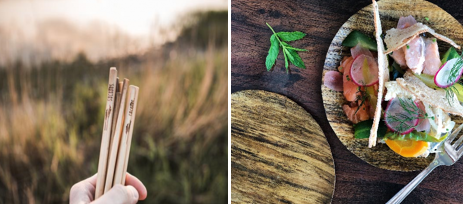Suckõrs uses naturally growing reed to produce reusable, biodegradable drinking straws and a novel material for goods
The common reed is the tallest and highest-yielding species of grass in Estonia. It can often be found growing next to bodies of water, in marshes, and on the edges of boglands. In total, Estonia has approximately 26,000 hectares of reed beds, while the area exceeds 300,000 hectares in the entire Baltic Sea region.
However, reed growing on shores has several hidden negative effects on the biodiversity of the area. While it binds nutrients effectively, it hinders the development of other species with its tall clusters, causing the plant communities of coastal meadows to dwindle.
As a raw material, reed is an abundant, quickly renewable source material with excellent functional properties. Reed is still used for making roofs and walls, as thermal insulation, or simply as mulch. Additional uses can now be added to this list – reusable reed drinking straws and a novel raw material to produce goods.
On average, a single reed provides enough material for two reusable drinking straws. The remainder of the plant is turned into a reed-based material, from which plates, decorative panels, etc. are made.
- Harvesting the reed cleans up coastal areas and improves the growth conditions of other species.
- The reed is natural, local, and quickly renewable – therefore, the straws have little to no effect on the climate.
- When processed responsibly, items made of reed are fully biodegradable, maintain high functionality, and lessen the global waste pollution caused by the use of synthetic materials.
- The reed is an ideal substitute for single-use plastic.

